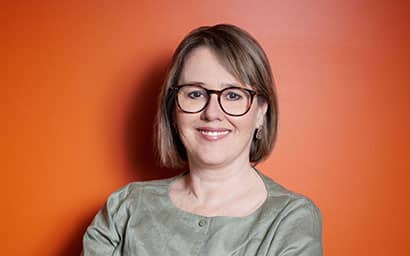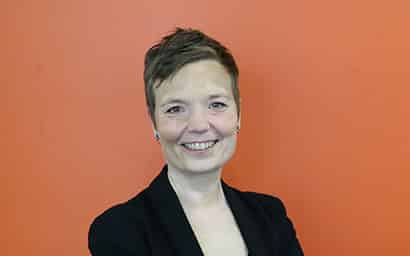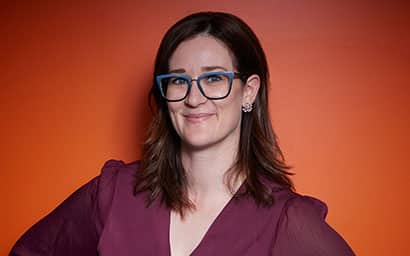
CP Alliance Chair of Cerebral Palsy Research, The University of Sydney and Medical Director and Co-Head, Grace Centre for Newborn Intensive Care, The Children’s Hospital at Westmead
Professor Badawi is an internationally recognised neonatologist and expert in cerebral palsy and newborn brain conditions. In her role as Chair of Cerebral Palsy, she is responsible for implementing the strategic plan for cerebral palsy research priorities.
Professor Badawi is renowned for her research on the outcomes of neonatal intensive care, neurodevelopment following surgery, neonatal encephalopathy and cerebral palsy. According to the objective medical expert ranking index, Expertscape, Professor Badawi is the third-ranking expert on cerebral palsy globally.
With an established reputation as the world’s leading authority on cerebral palsy, Professor Badawi was appointed as Australia’s first Chair of Cerebral Palsy in 2009 to lead and oversee our ambitious research program to:
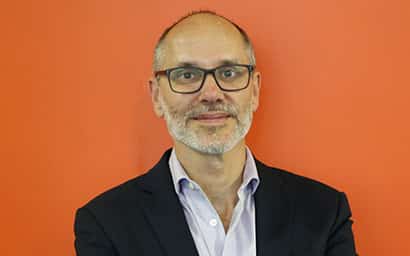
Ainsworth Chair of Technology and Innovation, The University of Sydney
Professor Alistair McEwan is the Ainsworth Chair of Technology and Innovation at Cerebral Palsy Alliance and University of Sydney, Faculty of Engineering and Information Technologies.
He is the Theme Leader for Biomedical Devices and Instrumentation and helps lead the Australian Research Council Training Centre for Innovative Bioengineering. He was appointed as CPA’s first Chair of Technology and Innovation in 2017 to harness advancing technology and innovation to accelerate the search for new and improved treatments and interventions for childhood disabilities.
Professor McEwan is an acknowledged leader in bioelectronics for solving health issues; in 2011 he was awarded a Microsoft Future Fellowship, the first Australian to be recognised with this award, for his work developing electronic devices to diagnose heart attack and stroke early. With teams in engineering and health, Professor McEwan is developing cognitive assessments for people with CP and investigating improved methods of mobility and communication using bionics, robotics and artificial intelligence to help people with cerebral palsy stay better connected to their communities.
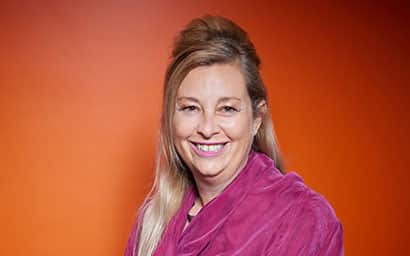
Chair of Allied Health, Head of Research Translation, The University of Sydney
Professor Iona Novak is the Cerebral Palsy Alliance Chair of Allied Health, The University of Sydney, Australia. Iona is a Fulbright Scholar establishing “Xcellerate” – an American-Australian Cerebral Palsy Stem Cell Research Consortium that pools collective efforts to find a cure and invited Chair of the International Clinical Guidelines for Cerebral Palsy.
Professor Novak is the top published occupational therapist in Australia, winner of the Elsass Foundation Research Award in 2021 and Editor for Evidence to Practice for Physical and Occupational Therapy in Paediatrics journal. According to the objective medical expert ranking index, Expertscape, Professor Novak is recognised as the second highest-ranked cerebral palsy expert globally.
Driven by an internal belief that research and healthcare have the potential to change lives, Professor Novak has pursued projects and roles with the greatest possible impact on children and families. She is internationally recognised as an expert in rehabilitation and neuroplasticity for children with CP and her work has led to changes in clinical practice in 24 countries, including co-founding the Australian Cerebral Palsy Register, and developing clinical practice guidelines to diagnose CP early, define best practice early intervention and interventions to improve independence for people with CP.
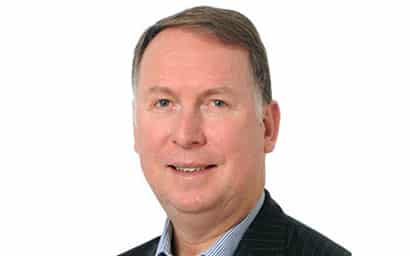
Chair in Neonatal Paediatrics, Director of CP Research, Victoria
CPA’s Chair of Research VIC was established in 2020 to bring together the brightest minds and key stakeholders across Victoria in CP research to accelerate building a research roadmap, providing direction for new discoveries globally.
Professor Rod Hunt, an accomplished researcher and neonatologist who has dedicated his working life to delivering the best care to some of Australia’s tiniest and most vulnerable babies was appointed to the position. Professor Hunt promotes CP research through collaboration with an outstanding multidisciplinary research team and program currently affiliated with seven major institutions in Victoria. Professor Hunt’s priorities include:
